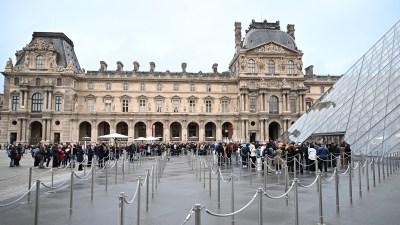A home of our own
To construct a home in the Capital, after retiring from the service of the British Indian Government, was a tough decision Dad took. He had ...

To construct a home in the Capital, after retiring from the service of the British Indian Government, was a tough decision Dad took. He had ancestral property in East Bengal but partition had taken its toll. Luckily for him, land prices in the fifties were fairly low and he could purchase a bigger plot, through a government agency, in the already developed West Delhi area.
Dad thought of building a two-storeyed structure and, to be on the safe side, got a blueprint prepared. He was advised by a recognised architect who kept in view all the existing building bye-laws. A copy of the blueprint, along with a forwarding letter, was promptly sent to the department for approval. Once the construction was completed, Dad applied for a ‘Completion Certificate’, the all-important document the department was supposed to deliver to the owner and which enables a person to obtain legal possession of his newly-built house.
In the meantime, to ensure safe entry, a concrete slab had to be built over the rainwater drain that ran before the main entrance. A second blueprint registering this was similarly forwarded to the municipal corporation — with an application, since the construction was outside the area of the plot.
A building inspector arrived after a month. Armed with copy of the first blueprint, he roamed inside the two-storied house for more than an hour, apparently looking for any unauthorised construction. Since he made no queries, we presumed he was satisfied. Dad led him to the drawing room for a cup of tea. While sipping it, the gentleman mildly drew our attention to the concrete structure in front of the main entrance, visible through an open window of the room. It was “irregular” he pointed out. Even as Dad showed him a copy of the second blueprint, he pleaded ignorance and left. To our dismay, a short while later, court summons was delivered to us: Dad was charged with having built an ‘unauthorised construction’.
I shouldered the responsibility of attending the court hearings since Dad was ill. The corporation lawyer placed our case before the magistrate. Studying it, he asked if permission was obtained for the extra construction. I showed him the requisite documents. Without further ado, he pronounced his judgment. It said that if he were to construct a house, he would place the concrete slab first since there was the ever present possibility of children tumbling into the drain.
As per his orders I paid a negligible amount as court fees, a norm for all. Socrates rightly said: “Four things belong to a judge, to hear courteously, to answer wisely, to consider soberly, and to decide impartially.”





- 01
- 02
- 03
- 04
- 05


























